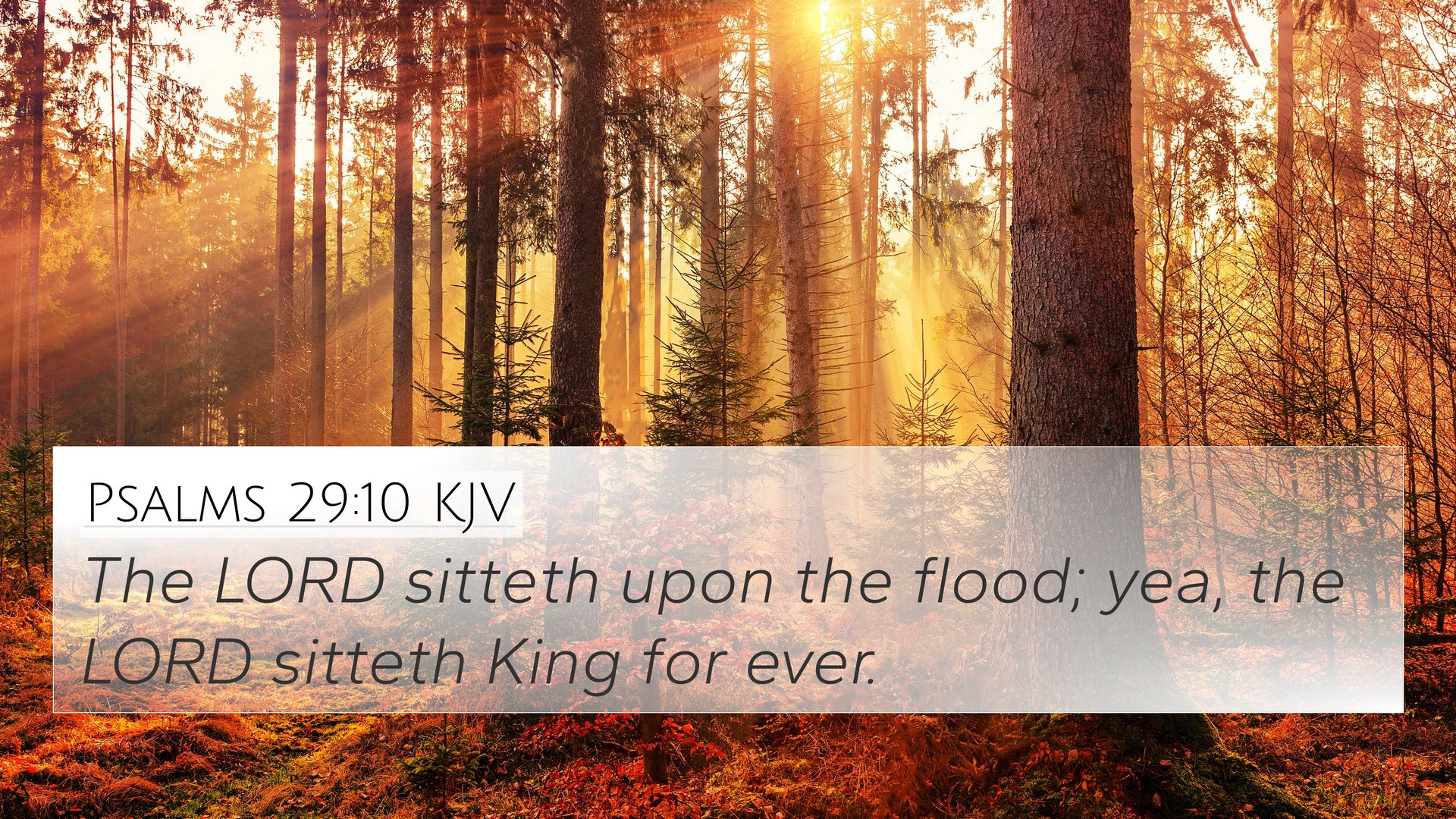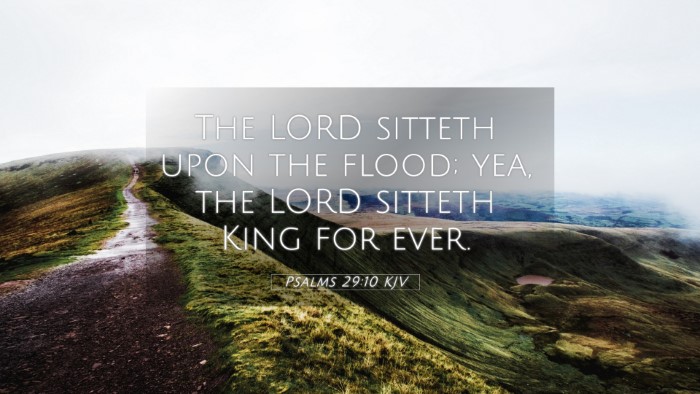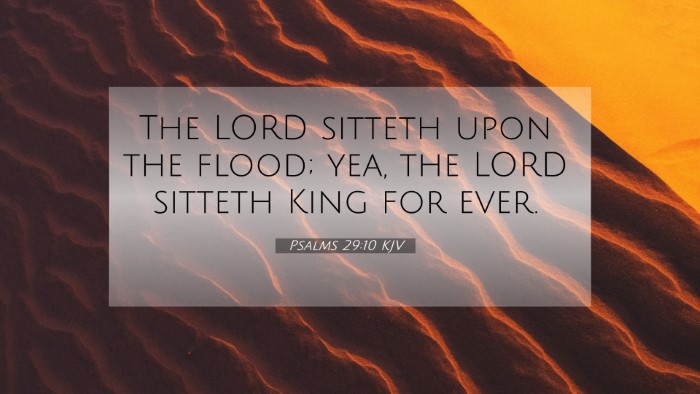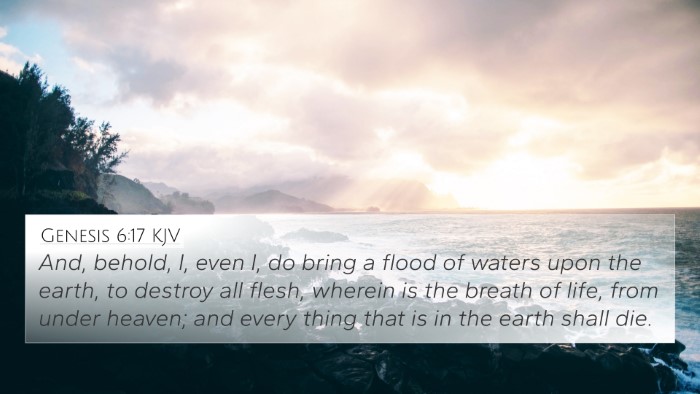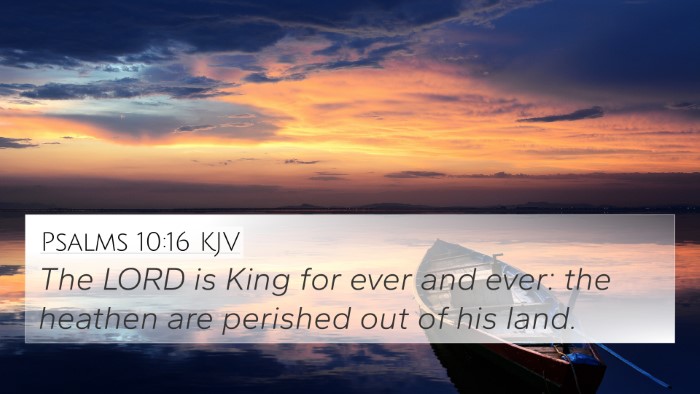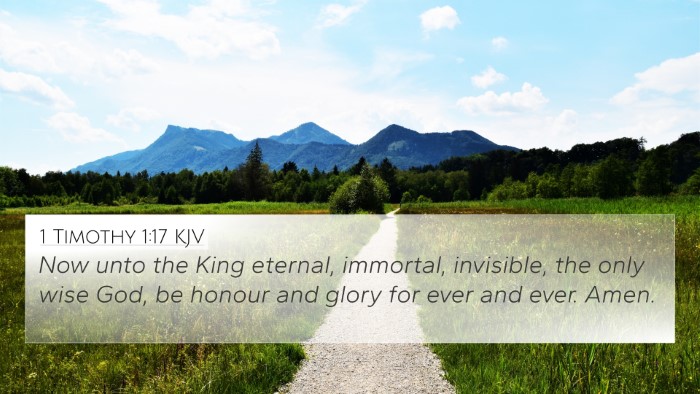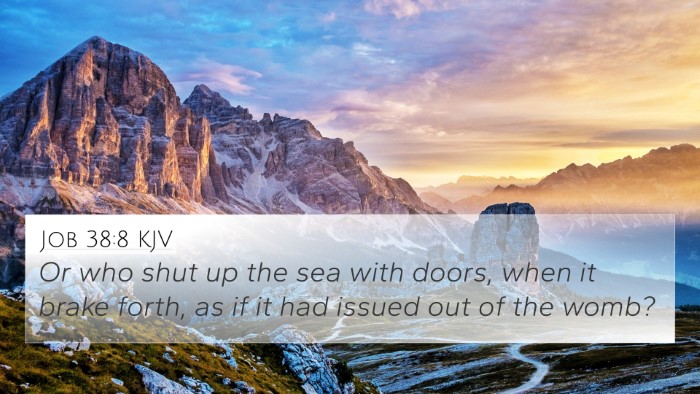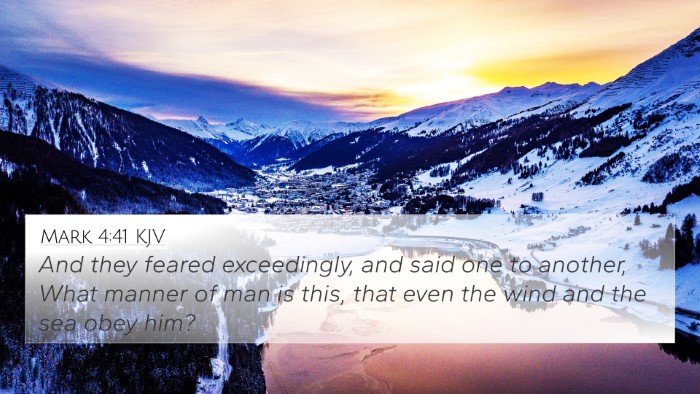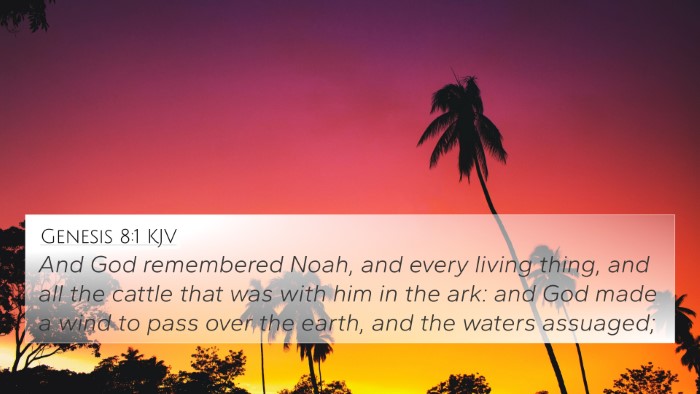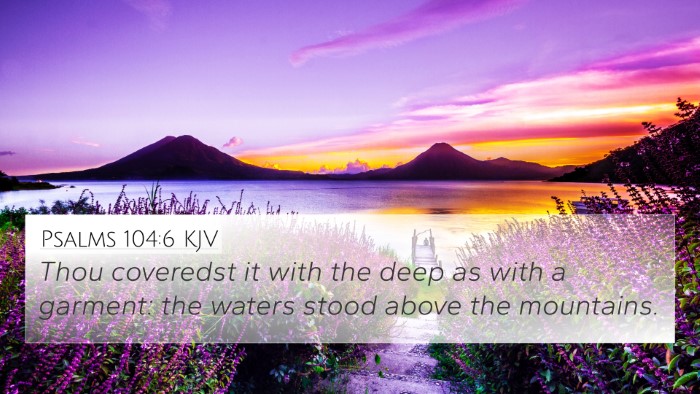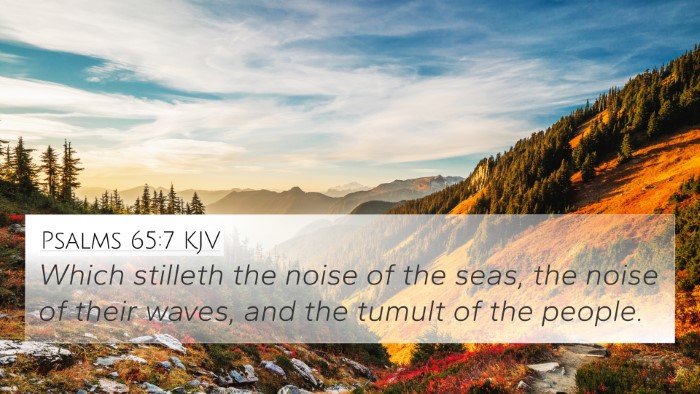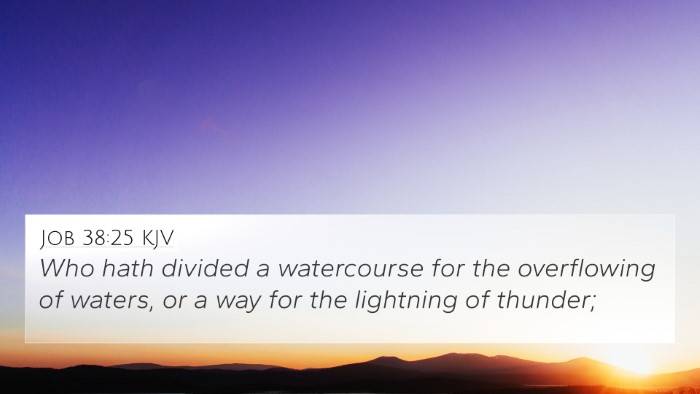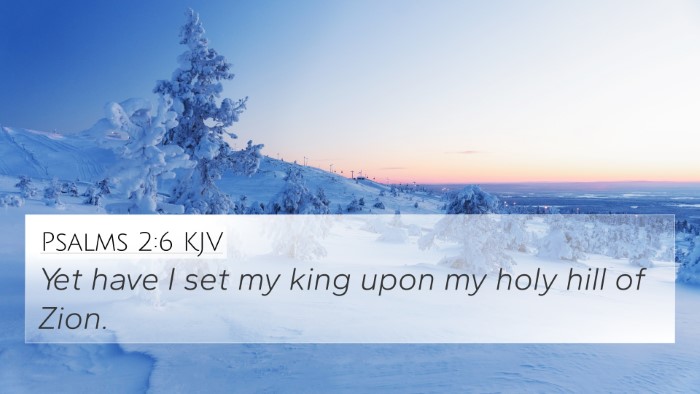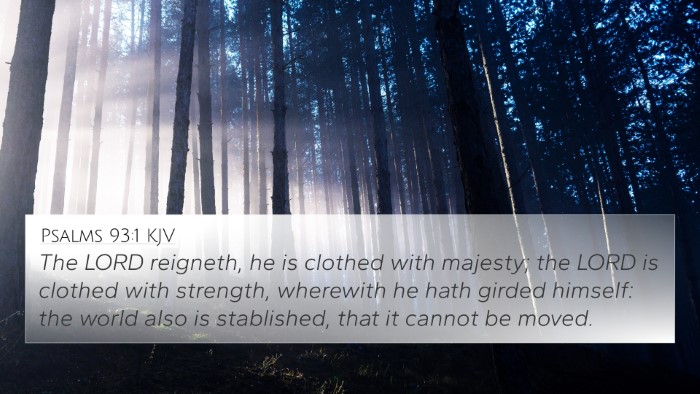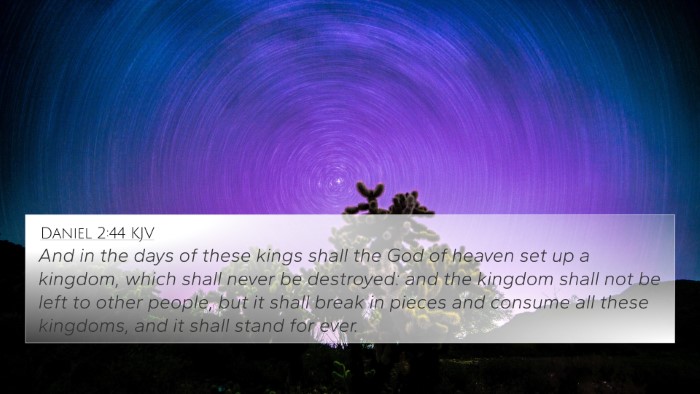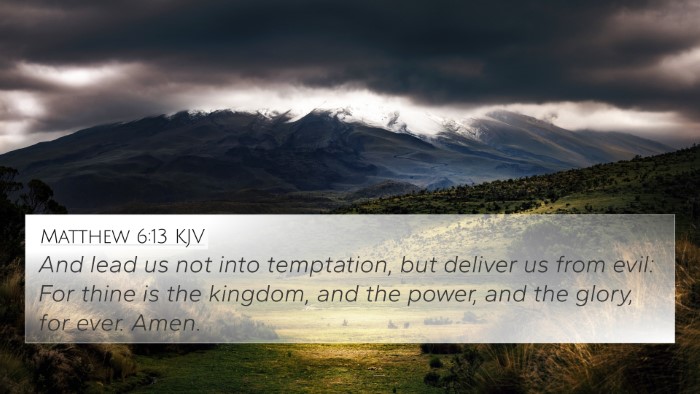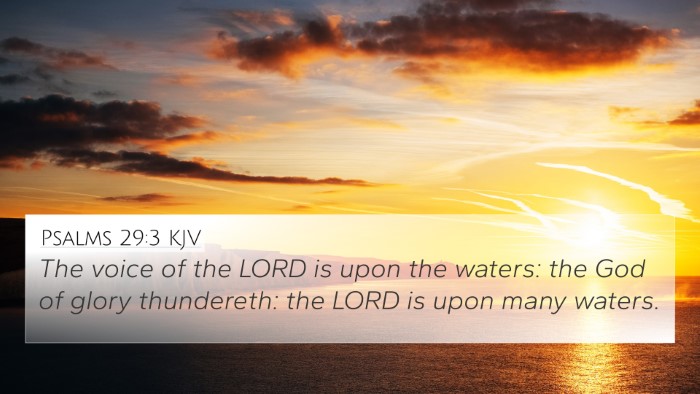Understanding Psalms 29:10
Psalms 29:10 states: "The Lord sits enthroned over the flood; the Lord is enthroned as King forever." This verse highlights the sovereignty and eternal rule of God, particularly in the context of tumultuous circumstances.
Verse Meaning and Context
This verse is situated in a psalm that celebrates the majesty and power of God through creation and nature. It emphasizes that despite chaos and storms (symbolized by the "flood"), God remains firmly in control.
Insights from Public Domain Commentaries
- Matthew Henry: Henry interprets this verse as a powerful reminder of God's dominion. He notes that the "flood" metaphorically represents the trials and tribulations of the world, and God's position as King reflects His authority over both natural and supernatural realms.
- Albert Barnes: Barnes expands on the idea of God's enduring kingship. He suggests that the assurance of God’s rule offers comfort to believers, particularly during difficult times. The mention of "forever" signifies the unending nature of God's sovereignty.
- Adam Clarke: Clarke emphasizes the poetical form of the psalm, illustrating the might of God akin to the mighty waters. He claims that God's reign is not temporary; instead, it is a perpetual mandate, solidifying the trustworthiness of God amid life’s tempests.
Key Themes and Cross-References
This verse connects powerfully with various themes throughout the Bible, particularly God’s sovereignty and eternal kingship. Below are some related cross-references:
- Psalm 93:1-2: "The LORD reigns, He is robed in majesty; the LORD is robed in majesty and armed with strength. Indeed, the world is established, firm and secure." This underlines God's eternal reign.
- Isaiah 40:12: "Who has measured the waters in the hollow of his hand, or with the breadth of his hand marked off the heavens?" This emphasizes God’s control over nature.
- Revelation 11:15: "The kingdom of the world has become the kingdom of our Lord and of his Messiah, and he will reign for ever and ever!" Pointing to the everlasting reign of God.
- Matthew 28:18: "Then Jesus came to them and said, 'All authority in heaven and on earth has been given to me.'" This shows the authority both in the physical and spiritual realms.
- Job 37:10: "The breath of God produces ice, and the broad waters become frozen." Reflecting God's power over natural elements.
- Hebrews 1:3: "The Son is the radiance of God’s glory and the exact representation of his being, sustaining all things by his powerful word." This emphasizes the continuous nature of God's control and sustaining power.
- Jeremiah 10:10: "But the Lord is the true God; he is the living God, the eternal King." An affirmation of God's eternal supremacy.
- Psalm 146:10: "The Lord reigns forever, your God, O Zion, for all generations. Praise the Lord!" A reminder of God’s timeless sovereignty.
- Isaiah 66:1: "This is what the Lord says: Heaven is my throne, and the earth is my footstool." Another illustration of God’s omnipotence and authority.
- Daniel 4:34-35: "His dominion is an everlasting dominion, and his kingdom endures from generation to generation." This points to God's eternal rulership.
Conclusion
In summary, Psalms 29:10 encapsulates a profound truth about the nature of God’s kingship amid adversity. Through cross-referencing various scriptures, we see a unified theme – God is sovereign and remains in control over all circumstances, as attested across both Old and New Testaments.
Encouraging Study Practices
For those seeking to deepen their understanding of the scripture, employing Bible cross-reference tools can be invaluable. Utilizing a Bible concordance or a cross-reference Bible study guide enhances one’s ability to uncover thematic connections and dialogues between different passages.
Understanding how to find cross-references in the Bible can significantly aid in interpreting and applying biblical themes. Engaging in comparative Bible verse analysis allows for a richer and more nuanced understanding of scriptural context.
